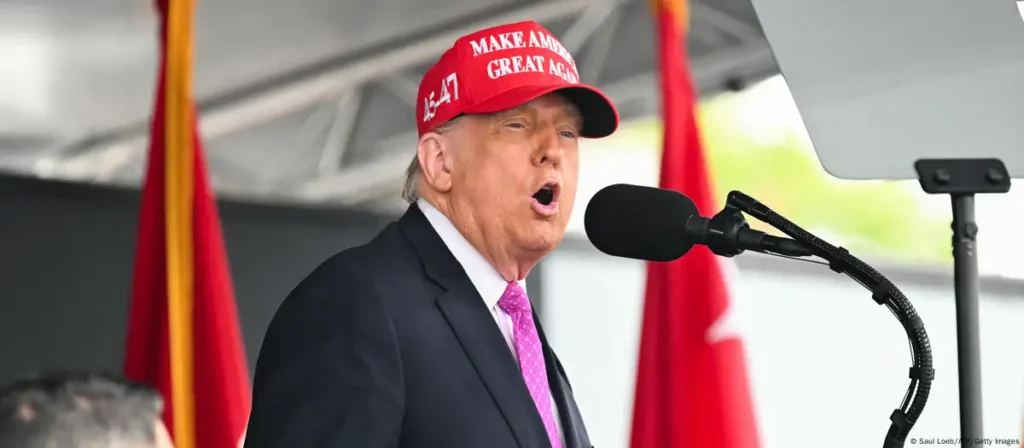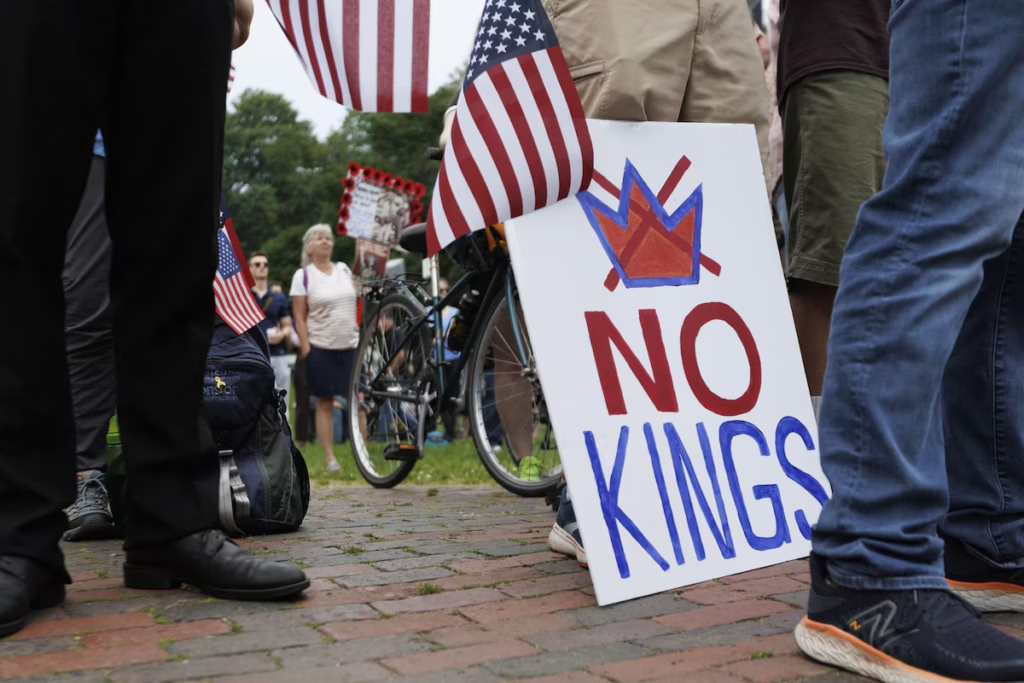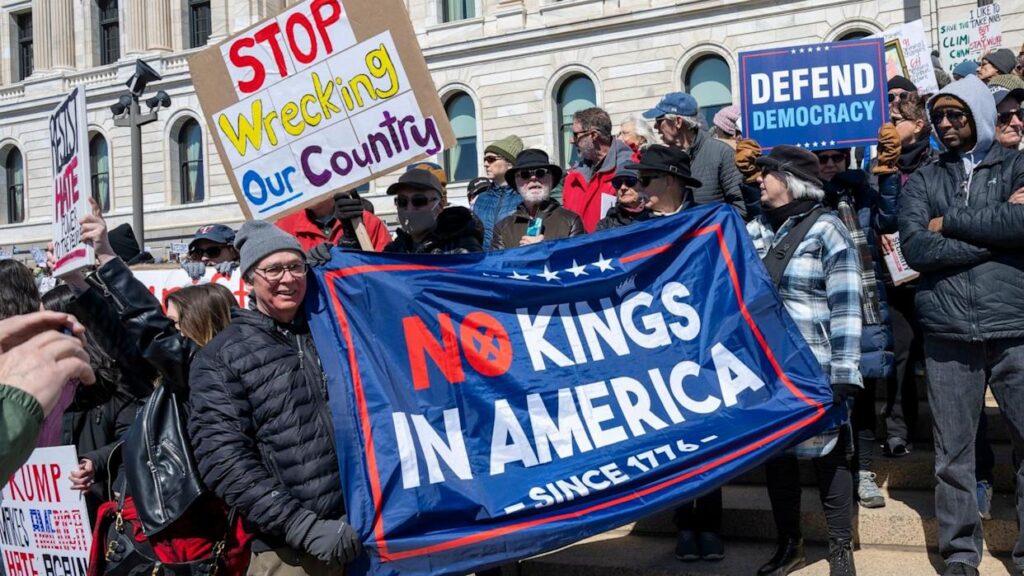WASHINGTON (BN24) — As President Donald Trump prepares to preside over the largest U.S. military parade in decades to commemorate the 250th anniversary of the Army — an event that coincides with his 79th birthday — a grassroots protest movement is mobilizing nationwide under the banner “No Kings.”

The demonstrations, scheduled for Saturday across all 50 states including Alaska and Hawaii, aim to counter what organizers describe as Trump’s authoritarian drift and militarization of governance. The protests are being coordinated by a decentralized activist coalition called 50501 — representing 50 states, 50 protests, one movement. Organizers expect around 2,000 participants, marking what could become the most significant wave of dissent since Trump began his second term in 2025.
While the protests will include criticism of Trump’s sweeping immigration enforcement policies — which have sparked unrest in places like Los Angeles — their central message is broader: a firm rejection of what demonstrators see as Trump’s growing executive overreach. Under the slogan “No Thrones. No Crowns. No Kings,” protesters seek to reassert the importance of democratic institutions, civil liberties, and constitutional checks and balances.

Saturday’s military spectacle in Washington, D.C., has been promoted by Trump as a show of strength and national pride. The event will feature soldiers in historic uniforms from major American conflicts — from the Revolutionary War to Vietnam — marching beside their modern-day counterparts. Tanks, fighter jets, and helicopters will roll through the capital in a massive display of U.S. military power.
“We will celebrate a spectacular military parade in Washington, D.C., like no other,” Trump declared. “It will be better and bigger than any parade we’ve ever had in this country.”
The last such parade took place in 1991 under President George H. W. Bush, marking the end of the Gulf War. Trump had previously attempted to launch a similar event during his first term, but plans were shelved over budget concerns and potential infrastructure damage. This year’s parade, greenlit amid rising patriotic fervor, is estimated to cost $45 million, including $16 million earmarked for road repairs caused by heavy military equipment.
The president has explicitly warned against counterdemonstrations in the capital, stating that “those who want to protest will be met with very big force.” In response, organizers of the “No Kings” movement have deliberately planned their events away from the immediate vicinity of the parade, stressing that the day should belong to the people, not a single man.
In Los Angeles, where tensions have surged over Trump’s intensified deportation raids and the deployment of nearly 700 U.S. Marines and National Guard troops, large-scale protests have already been underway for several days. While mostly peaceful, the protests have led to clashes with federal agents and several arrests.

The “No Kings” protests aim to draw attention beyond immigration crackdowns. Their mission, according to their website, is to confront what they see as Trump’s erosion of civil rights, his defiance of judicial authority, and his use of executive power to sidestep congressional oversight.
“They’ve defied our courts, deported Americans, disappeared people off the streets, attacked our civil rights, and slashed our services,” reads a statement on the movement’s website.
Trump’s critics accuse him of behaving more like a monarch than a president — cutting through constitutional norms, centralizing power, and cultivating a personality cult that celebrates military might and executive authority over democratic deliberation.
While Trump’s supporters praise his leadership for restoring order, streamlining government, and cracking down on what they see as illegal immigration and bureaucratic waste, his opponents view his presidency as a sustained threat to democratic norms. For them, Saturday’s military parade is not a celebration of America’s armed forces but a symbolic display of presidential power that demands civilian rebuke.
“Real power isn’t staged in Washington. It rises up everywhere else,” the “No Kings” group stated.
Though relatively modest in projected turnout, the “No Kings” protests symbolize a growing resistance movement within the United States — one that views Trump’s leadership as a departure from democratic governance. Organizers say their aim isn’t just to protest one day, but to galvanize a broader civic awakening that can restore what they believe Trump has eroded: accountability, balance, and rule of law.
As the capital prepares for its biggest parade in a generation, much of the rest of the country is preparing to march for a very different vision of America.



